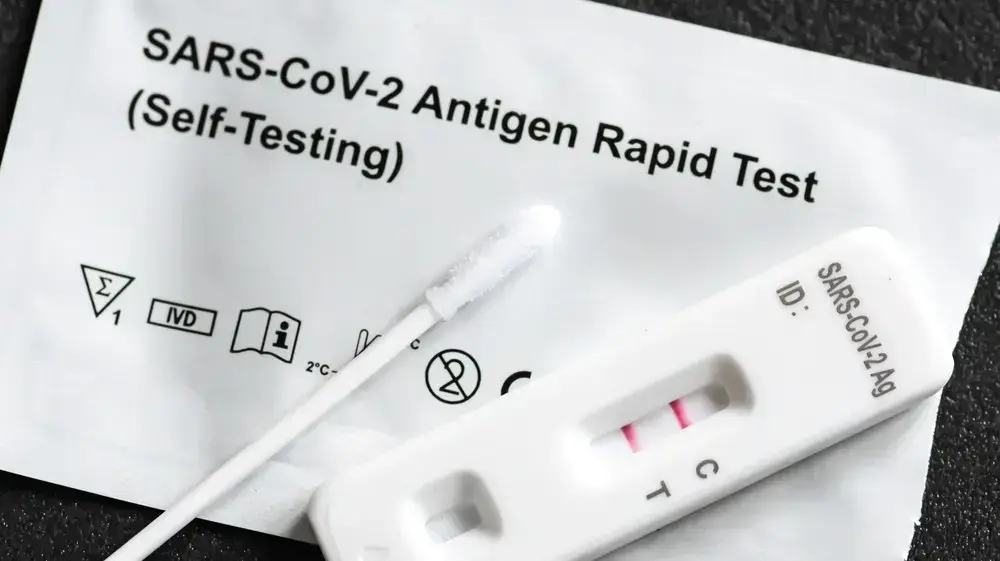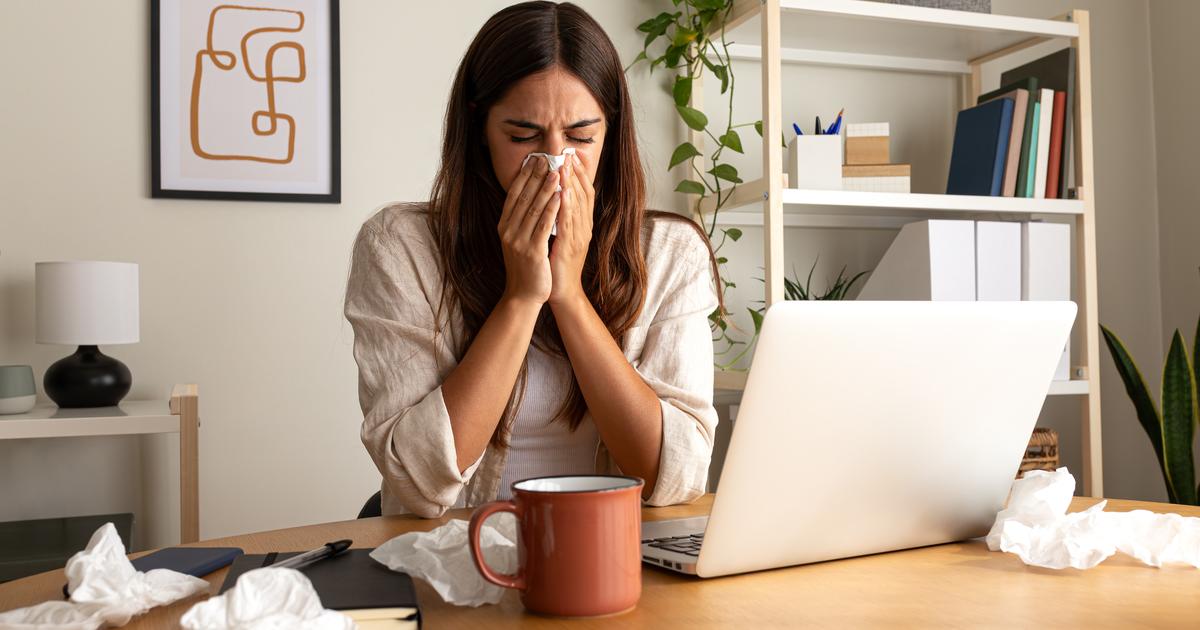What are the countries with the most infected with covid-19?
0:50
(CNN) --
Imagine a not-too-distant future where you can book that summer trip to Italy or don't have to remember to take off your mask for graduation photos.
After the last 25 months, forgetting about the pandemic, even for a while, can seem like a fantasy;
after all, it is not the first time that the coronavirus has let us down.
But infectious disease experts say there may be an end in sight.
Maybe.
Let's just say it's not out of the realm of possibility for 2022.
"I think if we get it right, we're going to have a 2022 where Covid doesn't dominate our lives as much," said Dr. Tom Frieden, who was director of the US Centers for Disease Control and Prevention. (CDC) under President Obama and is now the CEO and President of Resolve to Save Lives.
What the next part of the pandemic will look like and when it will arrive is what Stanford Medicine epidemiologist and infectious disease specialist Yvonne Maldonado, MD, and experts from federal agencies, academic colleagues, and local public health leaders spent the vacation trying to figure out.
There was a general consensus among experts about what will happen next: "We really don't know exactly," Maldonado said.
advertising
Disease models and lessons from past pandemics exist, but the way the highly infectious omicron variant of the coronavirus emerged has made scientists' proverbial crystal ball a little fuzzy.
"None of us really foresaw omicron," Maldonado said.
"Well, there were indications, but we didn't expect it to happen exactly the way it did."
The omicron variant did a lot.
More than a quarter of all cases of the covid-19 pandemic in the United States have been reported in the last month, during the omicron wave, according to data from Johns Hopkins University.
Americans show up to work sick as omicron spreads
As of Thursday, cases are down at least 10% compared to last week in 14 states, but in 26 states cases are up at least 10%, according to data from Johns Hopkins.
The surge appears to have peaked in some areas where the omicron variant first came to the US, such as Boston and New York.
But it is still out of control in other parts of the country.
In Georgia, for example, medical officials in metro Atlanta say hospitals remain overwhelmed.
With so many staff sick, the National Guard is now filling gaps in health care in states like Minnesota.
Louisiana Gov. John Bel Edwards said the "tremendous" number of COVID-19 cases, hospitalizations and deaths have been "the highest we've ever had in the state of Louisiana."
However, infectious disease experts see hope in what happened in South Africa.
CDC explain omicron difference in US and South Africa 1:09
"South Africa is kind of a canary in the coal mine, because they were able to pick up the omicron variant first," Maldonado said.
South African scientists first detected the variant in November.
Cases peaked and dropped rapidly.
The same thing happened in the UK.
And that is what experts believe will happen everywhere.
"I anticipate that in the short term, in the next six weeks, four to six weeks, it's still going to be pretty tough," said Dr. John Swartzberg, an infectious disease and vaccination expert and clinical professor emeritus in the School of Public Health. from the University of California, Berkeley.
"We'll have to wait until mid-February for us to really start to see things improve."
If this peak subsides rapidly, many experts think there could be a "calm period."
Swartzberg believes that from March to spring or summer it will be like last year, with a continued decline in the number of cases.
"There will be a sense of optimism, and then we can get more done in our lives," Swartzberg said.
"I think May or June is going to be really positive for us. I'm pretty optimistic."
Part of his optimism is because there will be a much larger immune population, between the growing number of vaccinated and boosted people, and those who caught Covid-19 during the omicron wave.
"Generally speaking, the level of immunity in our population is going to be much higher than it was before omicron came along, and that's going to help us not only with omicron and delta, if they're still around, but also with any new variants." Swartzberg said.
"To what extent will depend on the availability of drugs to intervene."
This is also due to the probability that the coronavirus will never completely disappear.
"I totally anticipate that another version of the virus will come back," Maldonado said.
"Those are the scenarios that really add uncertainty to what comes next."
The next variant
The next variant could be just as or even more transmissible than omicron.
It could give people more severe symptoms, or none at all.
"It's not at all clear what's going to come next," said Dr. George Rutherford, an epidemiologist at the University of California, San Francisco.
Rutherford says that the virus could gradually mutate, as happened with the alpha and beta variants.
Or it could take a very big jump, like with delta and omicron.
"What's next? It's a game of chance."
The H1N1 flu virus, for example, was a new virus when it started one of the worst pandemics in history in 1918, infecting a third of the world's population and killing 50 million people.
That pandemic is over, but the virus is still with us.
How serious is the disease caused by the omicron variant of the new coronavirus?
The answer to this question could define the future of the pandemic
"That was the great-great-grandfather of all the H1N1 viruses that we see every year," Maldonado said.
"They've had a lot of mutations since then, but it's the same strain. So it's possible this virus does something similar."
The United States continues to lose an average of about 35,000 people a year to the flu, according to the CDC.
"And we got on with our lives," Swartzberg said.
"I don't think it will go back to what it was, exactly."
Maldonado says that "that is the best scenario."
With this flu-like scenario, the world needs to focus on protecting people vulnerable to severe disease, making sure they get vaccinated and have access to monoclonal and antiviral antibodies, Maldonado said.
Vaccine companies would have to make specific vaccines for each variant, so that people can be vaccinated every year against covid-19.
The country also needs to improve testing.
Specialists fear shortage of monoclonal antibodies against covid-19
"Oral and monoclonal drugs are useless if you don't know you're COVID-positive," Swartzberg said.
Intermediate scenarios would be if there aren't enough antivirals or monoclonals to treat people who get it, or if vaccine manufacturers can't make variant-specific vaccines fast enough.
The worst case scenario is that a variant manages to evade the protection of vaccines and treatments.
"I think that's less likely to happen," Maldonado said.
Dr. Anthony Fauci, director of the National Institute of Allergy and Infectious Diseases, said he hopes that scenario doesn't play out.
"I can't give a statistic on the chances of that happening, but we have to be ready for it."
"So we hope for the best and prepare for the worst."
"Choose your own adventure" to get out of the pandemic
The United States already has the tools to limit new variants and end the pandemic quickly, says Dr. Panagis Galiatsatos.
"I don't think we need more scientific breakthroughs, we know how to stop severe covid: vaccines," says Galiatsatos, associate professor of medicine and an expert in pulmonary and critical care medicine at Johns Hopkins Medicine.
Masks and tests also help.
Galiatsatos gives hundreds of talks each year with community groups to encourage more people to get vaccinated.
He believes that scientists will have to continue with this outreach work.
"We have the weapons to transform covid into nothing more than a bad cold," Galiatsatos said.
"We have the science. All people need is access to interventions, and we have to earn their trust again."
Vaccination against covid-19 does not affect the fertility of men or women, according to a new study
Only a quarter of the US population is fully vaccinated and boosted, according to the CDC.
The more people are unvaccinated, the more will end up in the hospital.
The more cases, the more opportunities there are for new and dangerous variants.
"That's why it's like a 'Choose Your Own Adventure' [book]," Galiatsatos said.
"And I'm choosing the one that puts us in a better frame of mind to reach out to people and get more people vaccinated so they can end this pandemic and learn how to adapt to this."
omicron












/cloudfront-eu-central-1.images.arcpublishing.com/prisa/KMEYMJKESBAZBE4MRBAM4TGHIQ.jpg)


